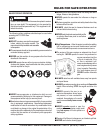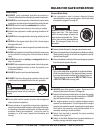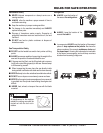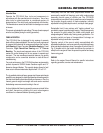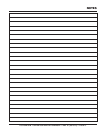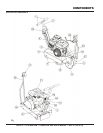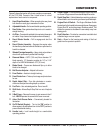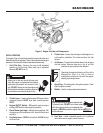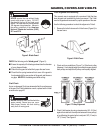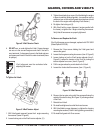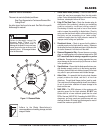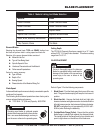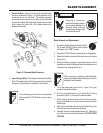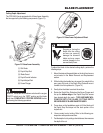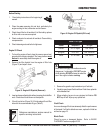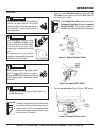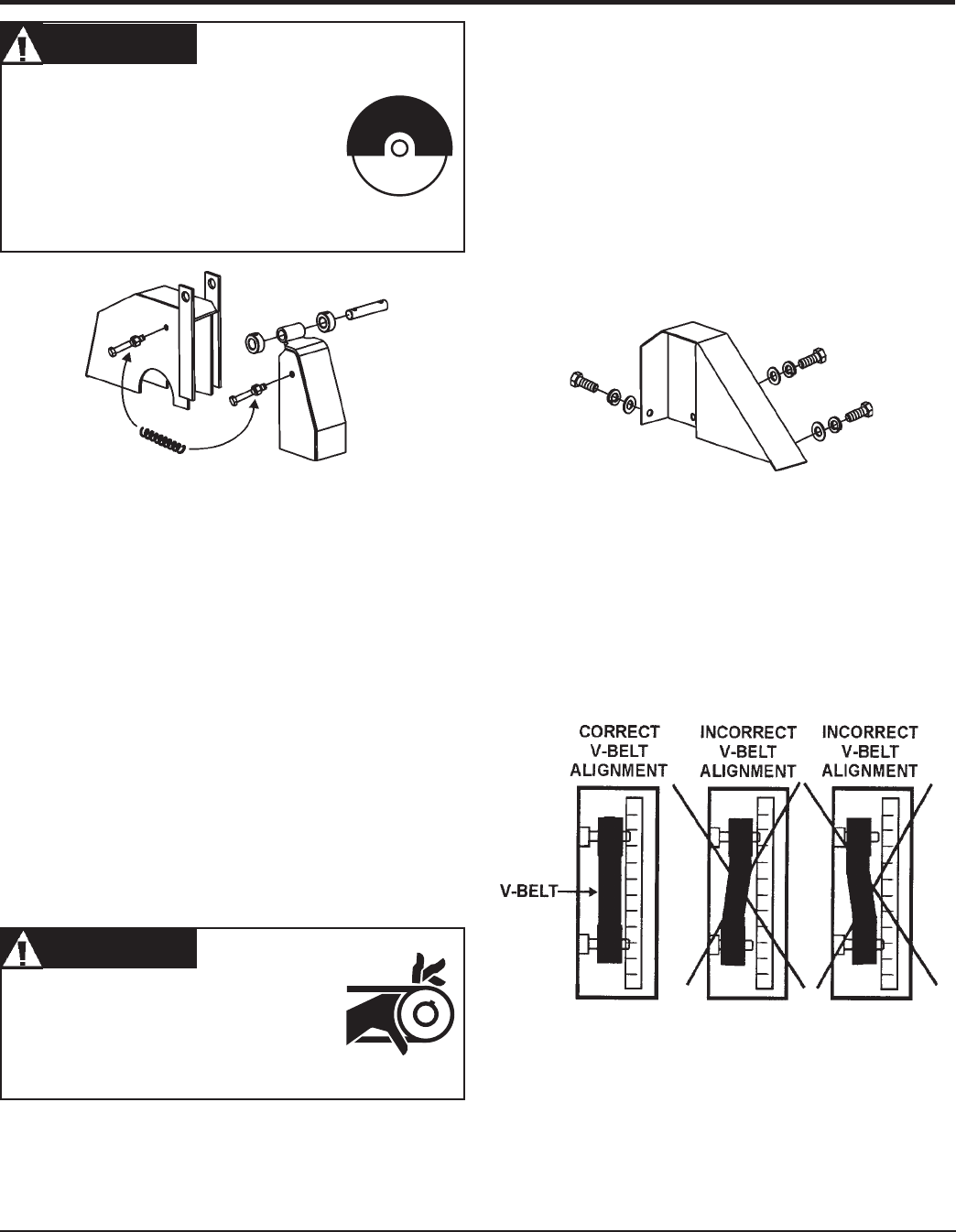
FCG16HA SAW • OPERATION AND PARTS MANUAL — REV. #1 (03/19/10) — PAGE 17
Figure 7. Pulley Alignment
3. Check V-belt tension by using a tension meter (6.0 - 9.0 lbs.)
against the inside belt at a mid point between the two pulleys,
or by deflecting the center belt at a mid point 3/8" (10 mm) to
1/2" (13 mm). See Figure 8.
GUARDS, COVERS AND V-BELTS
NEVER operate the saw without blade
guards and covers in place. DO NOT
operate with the front of the blade guard
raised. The blade exposure cannot exceed
180 degrees during operation. Adhere to
the safety guidelines of the American
National Standards Institute (ANSI)
B7.1 and B7.5.
Figure 5. Blade Guard
CHECK the following on the"blade guard" (Figure 5):
■
Ensure the capacity of the blade guard matches the diameter
of your diamond blade.
■
Check that the guard is bolted firmly upon the saw frame.
■
Check that the spring tensioned front cover of the guard is
firmly seated with the rear section of the guard, and there are
no gaps. NEVER lift the blade guard while cutting.
Figure 6. V-Belt Cover
NEVER attempt to check the V-belt with the
engine running. Severe injury can occur.
Keep fingers, hands, hair and clothing
away from all moving parts.
V-belt Alignment and Tensioning
This concrete saw is equipped with a premium V-belt that has
been aligned and tensioned by factory personnel. The V-belt
must be aligned and tensioned for proper operation of the saw.
Use the following procedure to check the alignment of V-belt:
1. Remove the bolts that secure the V-belt cover (Figure 6) to
the saw frame.
2. Check uniform parallelism (Figure 7) of V-belt and pulley
(sheaves). Use a straight-edge or machinist's square against
both pulleys and adjust both pulleys until equally aligned.
V-belt Check
A worn or damaged V-belt can adversely affect the performance
of the saw. If the V-belt is defective or worn, replace and the V-belt
as outlined on page 20.
CAUTIONCAUTION
CAUTIONCAUTION
CAUTION
WARNINGWARNING
WARNINGWARNING
WARNING



